Gujarat after Modi
Factions will quickly develop against the new chief minister, probably bringing party back to bad old days of late 90s

The writer is a former editor of the Mumbai-based English newspaper Mid Day and the Gujarati paper Divya Bhaskar. His book Translating Saadat Hasan Manto’s non-fiction work will be published this year
aakar.patel@tribune.com.pk
He has utterly dominated the party for the last 13 years, after he became chief minister in 2001. The background to his takeover was that there had been a struggle inside the party for supremacy. The BJP was full of factions and a long and open battle between Chief Ministers Keshubhai Patel and Shankarsinh Vaghela was particularly exhausting.
At one point the Rashtriya Swayamsevak Sangh (RSS) stepped in and decided to take control. Keshubhai was put to pasture and Modi (who had been exiled for his participation in the factionalism) was parachuted into the job of chief minister. The RSS Sarsanghachalak of the time, KS Sudarshan, also raised the profile of another Pracharak, Sanjay Joshi, to manage party affairs while Modi handled government.
What happened was that over time, Modi took charge of both the party and the government. Joshi was enmeshed in a sex scandal that brought such shame that he went into the shadows after that.
And Modi began to push out the old BJP leaders as he consolidated his power. And so people like Kashiram Rana, the undefeated six-term member of parliament from Surat, was denied a ticket without being given a reason. In Rana’s place, and in the place of other pushed-out leaders, Modi began promoting a younger group that was loyal directly to him.
After the seniors were pushed out of power and influence, Modi began going after their supporters. At this point it became unbearable for people like Keshubhai Patel to stay in the party and he revolted. This failed, and in the last election, he made no dent in the popularity of Modi or the BJP.
Today, it is indisputable that Modi controls the BJP in Gujarat and the entire leadership from mid-level upwards owes its rise directly to him. The central BJP could no longer control the party through balancing one leader with another.
Modi ended factionalism as he had been mandated to, but he did so in a way that the RSS did not anticipate. Within the RSS, Modi was backed by Sudarshan’s deputy, Mohan Bhagwat, with whom Modi’s ties go back to the early 1970s. It would not be incorrect to say that Bhagwat is Modi’s junior because Modi had been trained by Bhagwat’s father. After Sudarshan was retired and Bhagwat took over, Modi’s ascent to Delhi was destined. The RSS stood behind him, cadre and leadership, as it had behind no other political leader. With Modi’s likely ascension, what happens to Gujarat?
The first thing that will happen is that the hard Hindutva edge that Modi brought for so many years will dull slightly. This will bring relief to a state that is very divided at the neighbourhood level. The recent reports of the doings of Vishwa Hindu Parishad’s Pravin Togadia showed that. No matter who succeeds Modi, he or she is unlikely to be as divisive as he was, and that will be a good thing.
The other aspect is what the change will mean for the party.
Modi is, of course, going to continue to dominate the state through whoever he nominates as chief minister. But there will be a struggle for power inside, as his focus turns to bigger things. Having been loyal to an individual for so long, and having had very little independence, the party has not been nurtured properly in Gujarat.
The hierarchies are based on loyalty to Modi rather than merit or, as is normally the case, seniority.
The division of spoils will be lopsided in favour of the new chief minister’s group. However, this person will not be really powerful, with Modi lurking in the back. Factions will quickly develop against the new chief minister, probably bringing the party back to the bad old days of the late 1990s.
I think Modi’s move will be good for Gujaratis in general and the damage he has done to his party will show almost immediately.
Published in The Express Tribune, May 11th, 2014.
Like Opinion & Editorial on Facebook, follow @ETOpEd on Twitter to receive all updates on all our daily pieces.

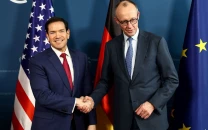
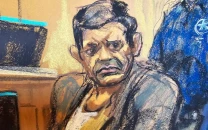
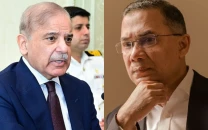
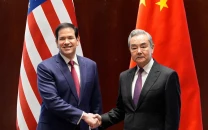

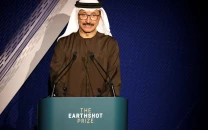












COMMENTS
Comments are moderated and generally will be posted if they are on-topic and not abusive.
For more information, please see our Comments FAQ